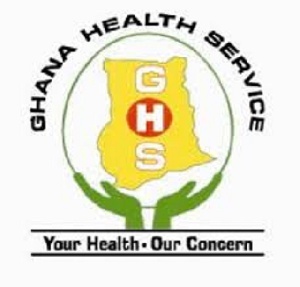The Upper East Regional Health Directorate has successfully administered 65,208 adolescent girls with multivitamin supplements to boost their immune system against iron deficiency.
The Girls’ Iron-Folate Tablet Supplementation (GIFTS), is a programme run by the Ghana Health Service in the Upper East Region to ensure that in-school and out of school menstruating adolescent girls in the region, were protected against anaemia.
The GIFTS programme was piloted in four regions of the country including the Upper East Region by the Ghana Health Service (GHS) with support from the United Nations International Children’s Emergency Fund (UNICEF), World Health Organization (WHO), the Canadian government, the Centre for Disease Control (CDC), the United States Agency for International Development (USAID), the Korea International Cooperation Agency (KOICA) and the Ghana Education Service (GES).
The intervention, which started in October 2016, is expected to end in 2019. It is aimed at reducing and preventing anaemia by 20 percent in women of childbearing age, and adolescents through weekly iron and folic acid supplementation.
At a stakeholder review meeting held in Bolgatanga, Dr Winfred Ofosu, the Upper East Regional Director of Health Services, said the ongoing programme involved a weekly distribution of Iron and Folic Acid (IFA) supplements to all adolescents aged 10 to 19 years on every Wednesday, known as “GIFTS Wednesday” across all public Junior and Senior High Schools in the region.
He said the Directorate targets to administer 97,608 adolescent girls by the end of the programme, but had so far reached out to 65,208, and indicated that the intervention was meant to build the iron and folate stock of the girl child, which would prevent postpartum hemorrhage when they grow into adulthood and ready for childbirth.
Dr Ofosu indicated that “Iron and folic are very important elements in the formation of blood, but these alone are not sufficient. We need to educate them on the need to eat nutritious food because you need protein to help in forming the blood.”
According to him, anaemia reduces concentration levels in children in the classroom, and makes them inactive, and said the programme would serve a dual purpose of boosting blood levels and further improving concentration levels in the children.
He expressed optimism that the intervention would help prevent maternal deaths and improve maternal health because, “we know that anaemia affects even the developing child.”
Dr Ofosu recalled some misconceptions by parents that the supplements were family planning contraceptives and urged nurses on the field to continue sensitising community members on the purpose and importance of the GIFTS.
Dr Priscilla Wobil, a Health and Nutrition Specialist with UNICEF office in the Northern Region, said one key intervention of UNICEF, was to prevent anaemia in adolescent girls and pregnant women as much as possible, and noted that the focus was on girls, because they were at higher risk of being anaemic due to menstruation.
She reiterated that anaemia affected the academic performance of adolescent girls, adding that “if they grow and are still anaemic, they could have several complications when they are pregnant.
“Some of the problems could be that, the baby may be born too small or too early because the mother may go into labour early and give birth to a preterm baby, and preterm babies have challenges surviving.”
Dr Wobil noted that bleeding during pregnancy or birth was one of the major complications that resulted in deaths, adding that, “if the mother is already anaemic, it poses a higher risk of death to the mother, so GIFTS is looking at both the health status, the nutritional status and the educational status of the girl child.”
Health News of Thursday, 19 July 2018
Source: ghananewsagency.org
GHS administers iron supplement to 65,208 adolescent girls
Entertainment












